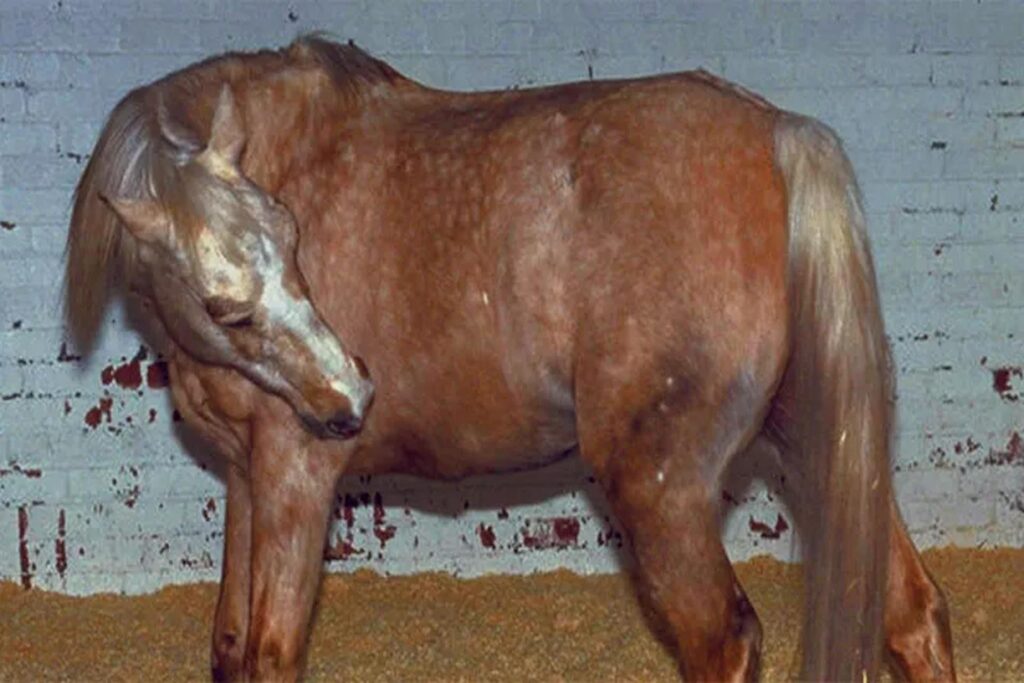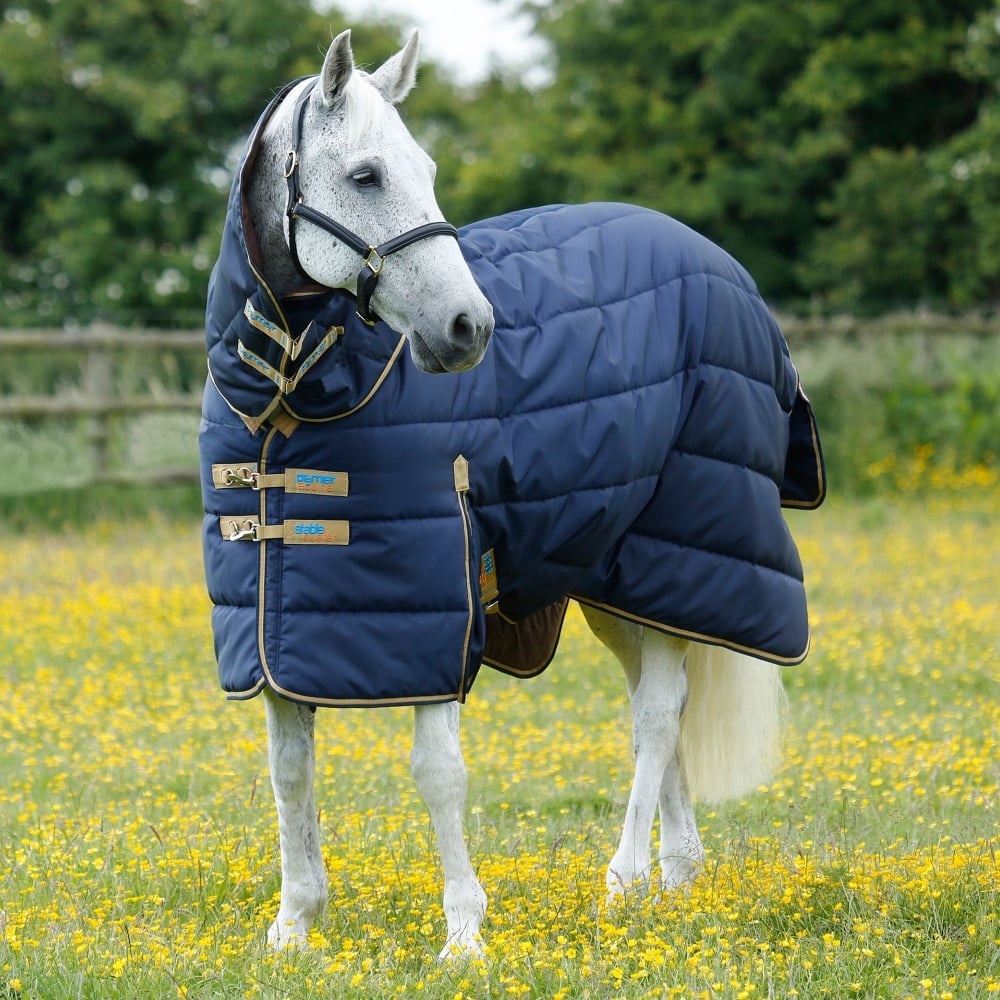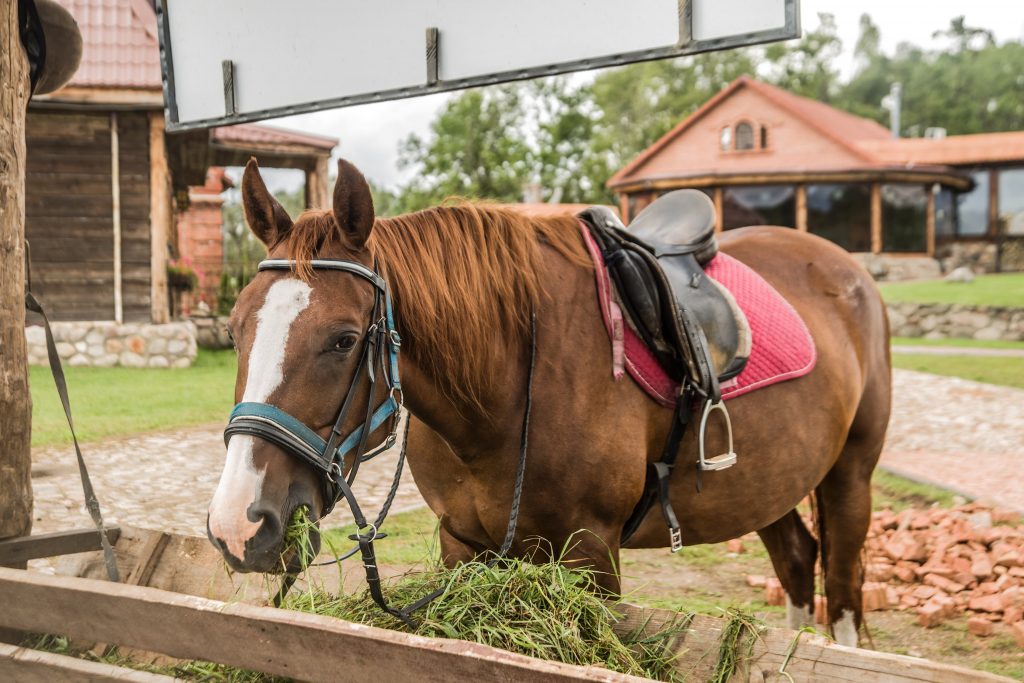Equine colic is a condition that could affect your horse, and the term itself refers to the abdominal pain that comes with this problem. It’s caused by an impaction of food in your horse’s gastrointestinal tract that becomes dry and results in a blockage. There are a range of causes that can lead to your horse developing an impact such as changes to your horse’s routine, a sudden change in diet, increased time in the stable with reduced movement, as well as a low forage intake. Forage is key for maintaining a healthy gut, and just as fiber is important for promoting bowel movements in humans, it does the same for your horse too. The pain that horses feel when experiencing colic can be caused by the stretching of the gut because of an obstruction but it can also be caused by a buildup of gas too Colic is a potentially fatal issue for a horse and so understanding how to reduce the risks of it occurring are a really important part of owning a horse.
Winter Colic
Colic can occur at any time of year but there are a few reasons specific to winter that are important to be aware of. In the winter, the horse food that makes up your horse’s diet will need to be adapted to provide sufficient fiber – this is because when the fiber is digested, it heats the horse from the inside out, meaning they’ll be able to cope with the cold weather more easily. Of course, pasture provides plenty of fiber but in winter, forages such as hay and haylage need to top up a horse’s fiber intake as pasture availability is reduced. Forages contain more indigestible material and so are more likely to result in an impaction than fresh pasture. Changing a horse’s diet suddenly can create issues which lead to colic and so if you are going to feed more bucket feed this should be introduced gradually too As well as this, the winter is a time when your horse may not be inclined to drink as much as it usually would, whether that’s due to troughs being frozen, or they simply do not want to drink icy cold water, which is when dehydration takes place. Lack of exercise and increased stabling in the winter months can also bring on this issue in horses.
Signs Of Colic
So, how can you tell if your horse is suffering from colic? There are a few signs that you should look out for, here are some of the most common:
- Change in appetite: Your horse may not seem interested in their food as they normally would.
- Lying down: Your horse may show signs of colic if they are lying down more often, at different times of the day than what is considered normal.
- Curling and lifting the upper lip
- Kicking the abdomen with their back legs
- Any symptom that shows your horse is uncomfortable
Avoiding Colic
There are a few factors to think about when trying to help your horse avoid this issue – especially in the winter. If your horse is spending more time in the stable, make sure you decrease their time in the field slowly. You should also try and allow them to remain turned out where possible. You should keep a close eye on your horse’s feed – make sure that they are eating mostly grass or forage, and if the concentrated feed is needed, try and feed this to your horse a little and often to help their body process it. Especially in the winter months, make sure your horse has water that is free from ice. You could try to entice them to drink more by adding a dash of warm water to the bucket to avoid dehydration. You could also soak hay in water to help increase general water intake.
Managing Colic
If the tell-tale signs are there, and you think your horse may be suffering from colic, you should call your vet immediately. Whilst some colic symptoms can seem mild, the longer you wait, the more severe the case may become. Colic can be fatal for horses if not managed correctly. Make sure that you monitor your horse every 15-20 minutes – this is crucial as your horse’s condition can worsen suddenly. There are a few ways your vet can help your horse once they assess the situation, one of the most notable is that they can help to relax your horse’s digestive system and use fluids to help move the blockage and reduce pain. You must make sure that you stick to your vet’s plan when it comes to managing the issue for the best results. If your horse needs to be hospitalised, or have surgery to deal with their colic, you should also ensure that you monitor your horse’s incision site to help recognise and reduce the chance of infection when they are back in your care. This way, your horse will be more likely to make a full recovery.


